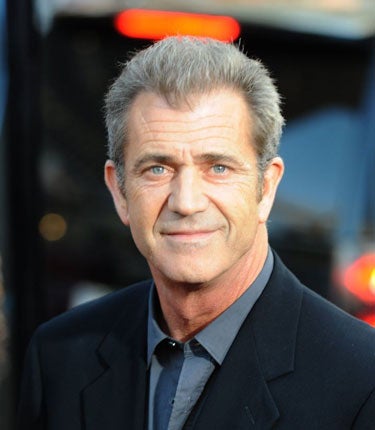Your support helps us to tell the story
From reproductive rights to climate change to Big Tech, The Independent is on the ground when the story is developing. Whether it's investigating the financials of Elon Musk's pro-Trump PAC or producing our latest documentary, 'The A Word', which shines a light on the American women fighting for reproductive rights, we know how important it is to parse out the facts from the messaging.
At such a critical moment in US history, we need reporters on the ground. Your donation allows us to keep sending journalists to speak to both sides of the story.
The Independent is trusted by Americans across the entire political spectrum. And unlike many other quality news outlets, we choose not to lock Americans out of our reporting and analysis with paywalls. We believe quality journalism should be available to everyone, paid for by those who can afford it.
Your support makes all the difference.Mel Gibson has had troubles with the law before, but a new crisis that has brought him up against the wrath of hundreds of Mexican prison inmates and their families could soon make the attentions of the Los Angeles police seem like a pleasant memory.
The streets outside the Ignacio Allende prison, in the coastal city of Veracruz, have this week been filled with protesters denouncing a plan for inmates to be shipped away so that Gibson and his crew can commence work on his latest big movie project, How I Spent My Summer.
Unlike in 2006, when it emerged that the star had made a series of anti-Semitic comments to a police officer who arrested him for drink-driving, the authorities are on Gibson's side this time. News of the scheme slipped out before Christmas, when the region's Governor, Fidel Herrera Beltrán, boasted to local journalists that "my friend Mel is coming to work for many months here", saying that a portion of the prison would be emptied "because a grand production will be filmed there".
Prestigious though the project undoubtedly sounded, it also spelled disaster for the inmates. Mexican prisons are notorious for overcrowding and rioting, and most residents rely on daily visits from loved ones to keep them supplied with food. Moving them to another city, or worse still another state, would cause serious hardship.
On Monday afternoon, shortly after soldiers were seen taking photographs and videos of the Ignacio Allende prison (apparently in preparation for Mr Gibson's arrival), protesters began noisily blockading the jail.
"We have been here all night supporting our relatives," one told Mexico's TV Azteca. "While we are here, we won't let anyone take them away." News footage showed crowds of around 200 carrying banners saying "no transfers to make a movie" and "Mel Gibson, it is your fault they are going to be transferred."
An uneasy truce was reached yesterday, when the prison's governor, Gerardo Duran, assured families they would be notified well before their relatives' moving date, and that efforts would be made to keep inmates in nearby prisons.
Whether those promises will be kept remains to be seen. But it's far from the joyous reception Mr Gibson might have expected when he decided to film in Veracruz, where he made Apocalypto in 2006 and gives extensively to local charities.
How I Spent My Summer, about a career criminal jailed in a developing world prison, is one of three projects Gibson hopes to complete this year, in an effort to return to the Hollywood fold.
The once-prolific actor has not appeared in a film since the 2006 drink-driving incident. His comeback trail has been fraught with difficulty, and last year Robert De Niro walked off the set of Edge of Darkness, Gibson's police drama, citing "creative differences".
This year, meanwhile, it emerged that the 53-year-old actor, a supposedly devout member of a conservative Catholic sect, had separated from his wife, Robyn, and was fathering a child with Oksana Grigorieva, a Russian musician several decades his junior.
The revelation raised the stakes in what is probably Hollywood's costliest divorce. After 28 years of marriage, Robyn was entitled to half her husband's personal fortune, which is said to be around $900m [£566m] thanks to the extraordinary success of the 2004 film The Passion of the Christ, which he wrote, directed and financed.

Join our commenting forum
Join thought-provoking conversations, follow other Independent readers and see their replies
Comments